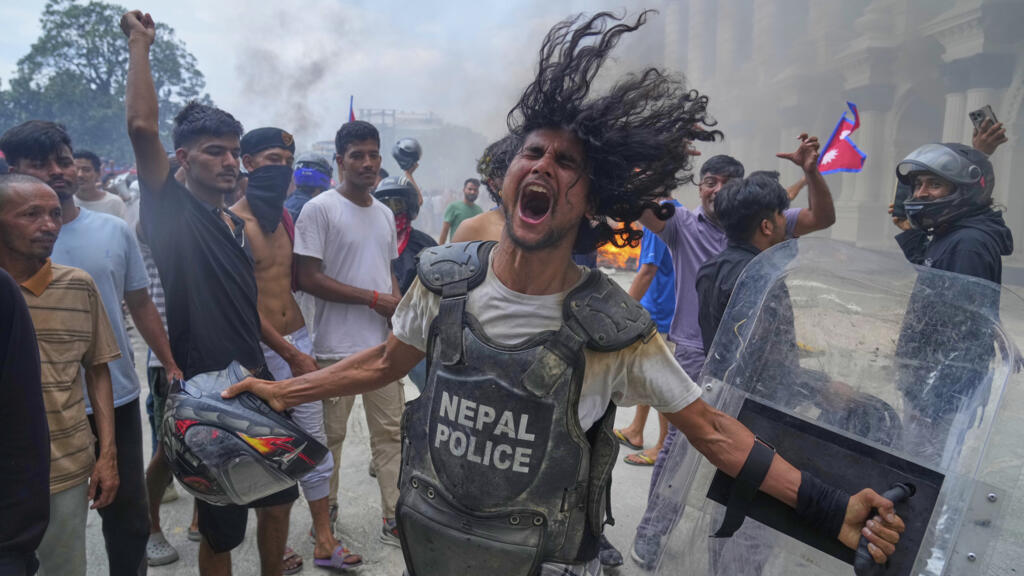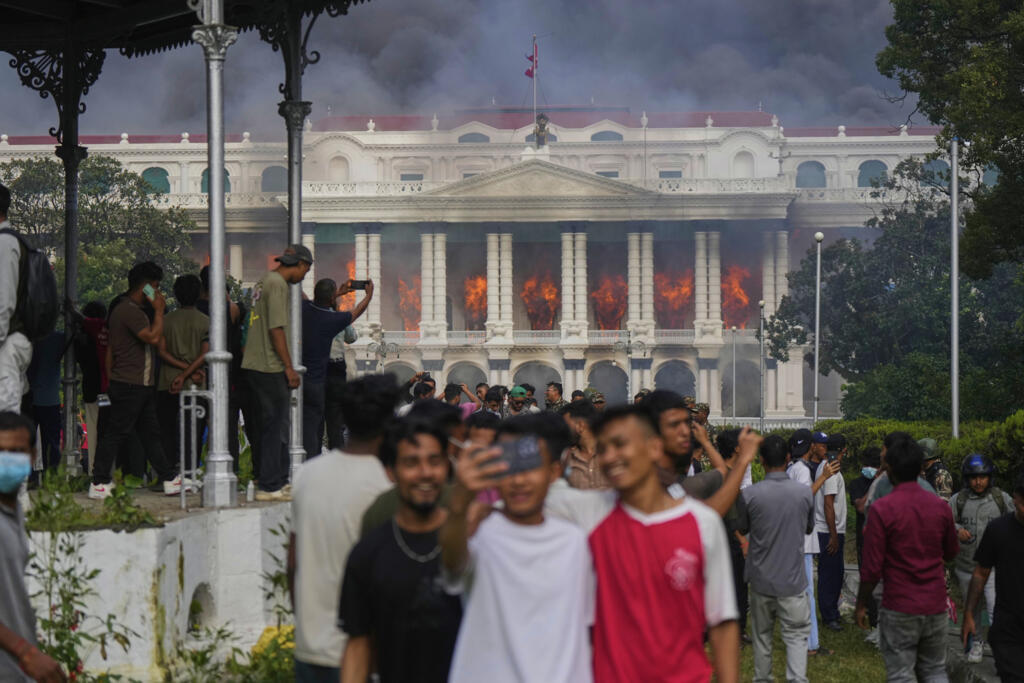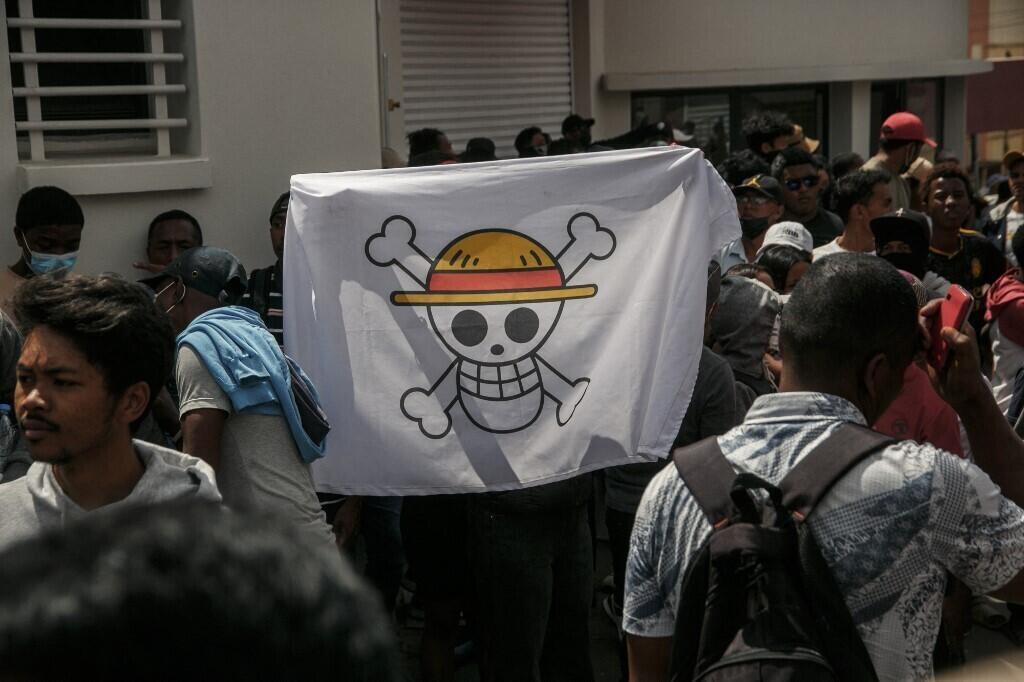
After sweeping away the Nepalese government in early September and shaking up the Philippines, a wave of protests initiated by Generation Z has now spread to Madagascar and Morocco. In each case, the demands are similar, with a sense of injustice informed by images on social media.
A surge of rebellion led by young people born between 1997 and 2012 is rewriting the rules of protest, with the smartphone the new megaphone.
Over the past three years, the pace at which these movements are changing the status quo has accelerated.
In 2022, it took five months for Sri Lankan students and activists to topple the Rajapaksa dynasty, which had clung to power for nearly two decades. In 2024, Bangladeshi Prime Minister Sheikh Hasina was ousted in just six weeks. In Nepal last month , it took a mere 48 hours for protests to bring down the government of Khadga Prasad Sharma Oli.
The profile of these movements is strikingly consistent, with the crowds overwhelmingly young and hyper-connected. They are members of Generation Z – the first cohort to grow up entirely in the digital age, with social media seen not as an accessory but the lens through which they interpret the world.
France accused of restricting protests and eroding democracy

'They see everything'
If the grievances vary by country – from corruption to education to basic services – the underlying themes are universal: anger at injustice, impatience with inequality and frustration at hypocrisy.
“These young people today are acting on demands that go beyond the purely political. They have a radical need for consistency, a need for authenticity,” says Elodie Gentina, a professor at the IESEG School of Management and a specialist in Gen Z.
"They want to compare everything, they judge everything, they see everything, because they have constant access to social media. They are also very aware of the contradictions between the promises made by leaders promises and their actions. They detest institutional hypocrisy – as seen in Nepal, where leaders talked a lot about modernity but at the same time blocked access to 26 social networks."
Anger that had been building online over the privileged offspring of the political elite flaunting their wealth on Instagram, in a country where 20 percent of 15 to 25-year-olds are unemployed, spilled over on to the streets.
Morocco rocked by fourth day of Gen Z-led protests over public services
The 'amplifier' effect
“Social media plays the role of emotional and political amplifier. It allows the sharing of images that can be inspiring, but also shocking. Gen Z are constantly comparing themselves to others, and that creates emulation. The viral logic of social networks transforms isolated frustrations into collective movements that become extremely powerful,” Gentina told RFI
In Indonesia, student protests earlier this year adopted an unlikely banner: the pirate flag from One Piece, a manga series in which the hero, Luffy, fights a corrupt and tyrannical world government.
A pop culture reference quickly became a unifying symbol, with the same imagery being adopted in Madagascar and Morocco.
In Madagascar, the triggers for the unrest were blackouts, water shortages and demands for basic freedoms. In Morocco, a collective calling itself "Gen Z 212" emerged online, calling for education and healthcare reform, and questioning the billions poured into hosting the 2030 World Cup while everyday needs go unmet.
“These are purely social demands,” says Souad Brahma, president of the Moroccan Association for Human Rights, speaking to RFI. “The right to a dignified life – that means education, healthcare, decent housing. And through certain slogans, they also call for an end to corruption.”
Madagascar’s president dismisses cabinet as blackout protests turn deadly

Demographic weight
“More than against [individual] governments, Generation Z is rebelling against a model of governance that no longer works for them,” explains Gentina.
"They deem it too top-down, too opaque, too slow. These young people demand transparency and concrete results. They can no longer tolerate inconsistency between words and actions."
With more than a third of the world’s population belonging to Gen Z, demographics are on their side. In parts of Asia, they account for half the population, making their voices impossible to ignore.
As for where they might rise up next, all eyes are on India. The world's most populous nation also has the largest Gen Z population on the Asian continent, and those hundreds of millions of young people have not been spared by the mass unemployment, inequality and corruption that plague the country.
This article ahas been adapted from the original version in French.







